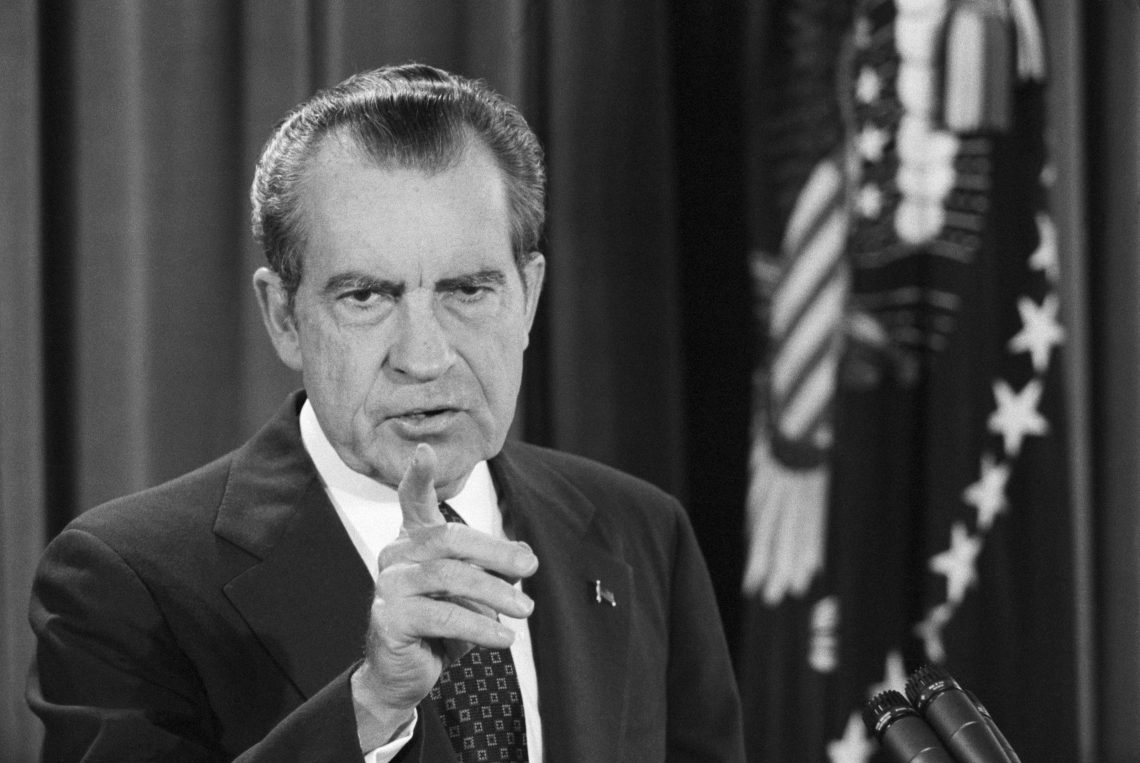The long-term effects of inflation include rising inequality
Inflation shifts investment from growth to speculation, slowing development and feeding social strife, but governments remain addicted to inflationary spending.

In a nutshell
- Persistent inflation has plagued most Western countries for over 50 years
- This stunts growth and feeds social anger that political actions cannot fix
- Technology may offer a way out, but governments protect the status quo
We are living in the age of inflation. Although inflation has existed in one form or another since the beginning of the monetary economy, no economic system has ever institutionalized and perpetuated the devaluation of money to the same extent as the system we live in today.
According to the official inflation figures from the United States Bureau of Labor Statistics, one U.S. dollar in August 1971 had the same purchasing power as $7.66 in March 2024. Conversely, the purchasing power of one U.S. dollar today is equivalent to that of just 13 cents in 1971, when President Richard Nixon abolished the last remnants of a gold backing of the U.S. dollar within the Bretton Woods system.
What do these figures mean? For more than half a century, the U.S. dollar has depreciated by an average of almost 4 percent per year relative to the usual consumer goods an American household buys. These are the official inflation figures, which do not look beyond private consumption. However, since at least the 1980s, there has also been disproportionately high asset price inflation in real estate, stocks and many other long-term assets, such as precious metals. The U.S. dollar price for gold, for example, has increased by an average annual rate of 6.3 percent over the past 30 years.
Facts & figures
‘Nixon Shock’
After World War II, the Bretton Woods system fixed exchange rates by tying currencies to the U.S. dollar, which was convertible to gold. But as the global economy grew, the U.S. gold reserves became insufficient to back the expanding pool of dollars in circulation. In 1971, President Richard Nixon responded to rising inflation and unemployment at home by “temporarily” suspending the dollar’s convertibility into gold. The “Nixon Shock” paved the way for today’s system of floating fiat currencies and changed the nature of international monetary policy.
Listing the long-term consequences of persistent inflation could fill entire volumes.
The situation is similar in Europe. Since the introduction of the euro in 1999, average consumer price inflation in the eurozone has hovered around 2 percent per year. That means that the European Central Bank has hit its stated monetary policy target, if only on average. At the same time, real estate and stock markets have been heavily inflated over the entire period, a fact that is not taken into account in the official inflation statistics. Real estate prices have almost tripled in France and more than doubled in Germany over the last 25 years. Share prices are constantly spiking to new record highs and appear to be decoupled from the real economy. All these signs tell us that we are indeed living in the age of inflation.
Facts & figures
Listing the long-term consequences of persistent inflation could fill entire volumes. But among these consequences, three seem particularly relevant.
Inflation undermines real economic growth
Economists agree that we can stimulate the economy through inflation in the short term. However, what seems reasonable from a near-term perspective can sometimes cause considerable damage in the long term. We all know examples of this truism, but not everyone realizes that it also applies to inflation. Within the specifics of a given economy, a rise in inflation can almost always stimulate additional economic activity.
Read more on inflation
- Why Western governments may opt to sit out the crisis in real estate
- Tighter monetary policy for fighting inflation? Really?
- Inflation and overregulation are markers of the end of free societies
- Switzerland shows the many faces of inflation
Lowering interest rates and expanding the money supply increase the volumes of credit, investment and consumption. All of this accelerates the economic process. However, persistent inflation over the long term prompts changes in the underlying economic structure. Investors who create the basis for economic growth will adapt their behavior to the new circumstances. In an inflationary economy, chaotic conditions often prevail.
Productive investments in building up the real capital stock are therefore associated with increased risks. However, one can be confident that prices will rise on average, and the prices of existing assets, such as real estate, will rise more than proportionately. This means that from an investor’s perspective, it is becoming much more sensible to purchase existing assets instead of investing in the production of new ones.
Productive investments are increasingly being crowded out by speculative investments aimed at reaping profit from increasing prices. If productive investments fail to materialize, an economy can no longer grow in real terms. It then lives off its existing substance, consuming capital instead of building it.
Inflation increases inequality
The growing demand for long-term assets that protect against inflation can be seen as a sort of self-defense mechanism. When inflation persists over the long term, a cultural and social learning process sets in.
The simplest form of saving is to put some money aside. It has also been, for a long time, a common form of saving in low-income households. The more people understand that this strategy no longer works, the more society will be caught up in a maelstrom of asset price inflation. More and more people are buying property, for example, not to live in or rent out, but to park their savings and protect them from erosion. That explains the high vacancy rates in cities such as London, Paris and New York City.
The ever-increasing demand for long-term assets means that asset prices tend to rise faster and faster, and people’s incomes are lagging behind. The wealthy classes are moving further away from the less affluent classes. Steady inflation, even if it is moderate on average, is driving a wedge between rich and poor.
Inflation promotes frustration and resentment
For average-income earners without existing assets, social advancement is becoming increasingly difficult in the face of disproportionately high asset price inflation. It is true that an inflationary economy also offers many opportunities to some individuals. A have-not can quickly achieve great wealth if he or she only bets on the right horse. But this is the exception, not the rule. Inflation does not benefit the majority. On the contrary, those lucky individuals achieve great wealth precisely because the masses lose out in the process of inflation.
If sufficiently many people lose trust in the economic system they live in, the democratic process will sooner or later dismantle that system.
This tendency has serious consequences for a society’s cohesion. In an inflationary economy, individuals can become rich at the expense of others without producing anything of value to others. It is often impossible to tell how much of a given fortune is the result of productive activity and how much is the result of inflationary redistribution.
Many people intuitively sense the unfairness of this situation, which fuels envy, resentment and annoyance. Over time, these feelings tend to be directed against all the haves, including those who gain most of their wealth through productive activity. In this way, self-destructive emotions are generated and accumulated in society and manifest themselves through politics. If sufficiently many people lose trust in the economic system they live in, the democratic process will sooner or later dismantle that system.
Scenarios
Future developments crucially depend on what people perceive to be the causes of the above effects. Stress, anxiety and general discontent with the economic system translate into fruitful reforms only to the extent that people correctly understand the cause-and-effect relationships that matter.
Unlikely: Most people will push for the right reforms
Most people can, in principle, understand the essential cause-and-effect relationships that matter. But do they really? It seems rather unlikely. Economic and financial literacy in North America and Europe is on the decline. General education outcomes have been falling for years. It is easy to err when it comes to the economy, even though the principles that need to be upheld to generate prosperity are simple: secure private property rights, low regime uncertainty and stable money.
In these circumstances, it seems more likely that a significant number of people will fall for some interventionist schemes.
Most likely: Further futile interventions
The easy solution to a problem like inequality is fiscal redistribution, that is, higher taxes and welfare spending. People seem more ready to accept such measures instead of pressing for an end to inflationary monetary policies. They tend to believe that the free-market system drives up inequality by its nature, and they generally do not understand the monetary system. Neither do they understand the phenomenon of inflation and its long-term effects.
Going down the interventionist spiral by implementing further policy changes to correct some of these adverse effects has been our trajectory for decades.
Likely: Technology provides a way out, but governments oppose it
It is likely that the next years will bring more significant technological progress in the digital sphere, including cryptocurrencies, artificial intelligence and big data. If money decoupled from political influence is feasible at all in our day and age, it will likely come out of such technological advances. A lot will depend on how governments react to those advances. It seems very unlikely that they will let cryptocurrencies run their course freely, especially if, at some stage, such currencies rise to the rank of a serious competitor of government-controlled fiat money.
So, even if technology delivers potential solutions to our inflationary monetary system, it seems likely that politics will appropriate, throttle and, in the worst case, destroy these solutions. If that proves to be the case, one can only hope for technology to be faster and more efficient than government control.
For industry-specific scenarios and bespoke geopolitical intelligence, contact us and we will provide you with more information about our advisory services.









